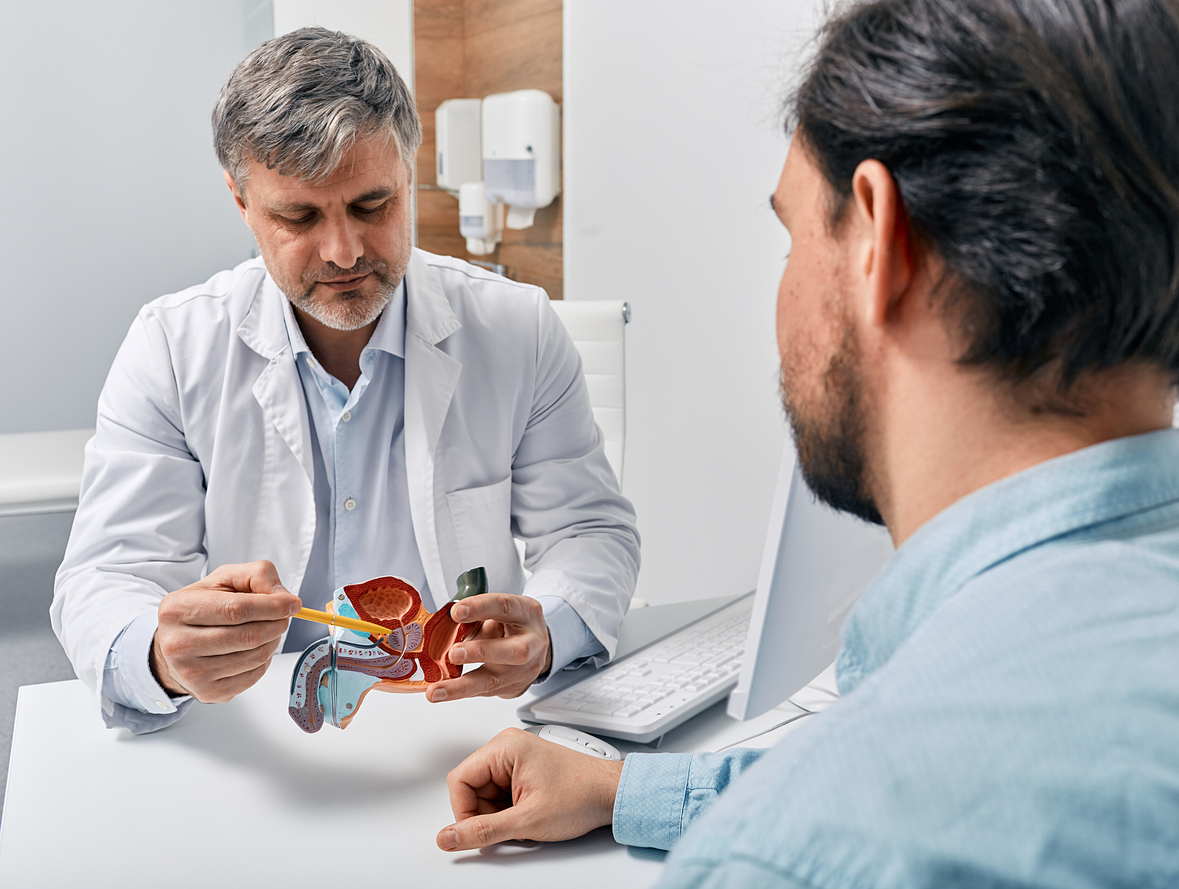Prostate cancer is one of the most common types of cancer in men. Early detection and timely intervention are crucial for successful treatments.

Early Signs
Urinary Changes
One of the earliest signs of prostate cancer is changes in urinary habits. This may include frequent urination, especially at night (nocturia), weak or interrupted urine flow, and difficulty starting or stopping urination.
Difficulty Emptying the Bladder
Men with prostate cancer may experience difficulty fully emptying their bladder after urination, leading to a feeling of residual urine.
Weak or Disrupted Urine Flow
A weakened or disrupted urine stream, along with pain or burning sensations during urination, could be indicative of prostate issues, including cancer.
Advanced Symptoms
Blood in Urine or Semen
The presence of blood in urine (hematuria) or semen may signal more advanced prostate cancer. If you notice any blood in your bodily fluids, consult a medical professional.
Persistent Pain
Persistent pain or discomfort in the pelvic area, lower back, hips, or upper thighs might be associated with prostate cancer that has spread to nearby tissues.
Sexual Function
Erectile Dysfunction
Prostate cancer and its treatments can impact sexual function, leading to erectile dysfunction (difficulty achieving or maintaining an erection).
Decreased Libido
A decreased interest in sexual activity or a reduced sex drive might be attributed to prostate cancer.
Bone Health
Bone Pain
Advanced prostate cancer can spread to the bones, causing bone pain, especially in the spine, hips, and ribs.
Fractures
Weakened bones due to cancer metastasis can increase the risk of fractures, even with minor trauma.
General Health
Unexplained Weight Loss
Unintentional weight loss, without changes in diet or exercise, might be a sign of advanced prostate cancer affecting overall health.
Fatigue
Persistent fatigue and a lack of energy could be linked to prostate cancer, especially as the disease progresses.
Screening and Detection
Prostate-Specific Antigen (PSA) Test
The PSA blood test measures the level of PSA, a protein produced by the prostate gland. Elevated PSA levels could indicate prostate issues, including cancer.
Digital Rectal Exam (DRE)
During a DRE, a healthcare professional examines the prostate by inserting a gloved, lubricated finger into the rectum to assess for abnormalities.
Importance of Early Detection
Reducing Risk Factors
Maintaining a healthy lifestyle, including a balanced diet, regular exercise, and avoiding tobacco, can reduce the risk of developing prostate cancer.
Regular Checkups
Regular visits to a healthcare provider are essential for monitoring prostate health, especially if you're at higher risk due to family history or age.
Treatment Options
Active Surveillance
For slow-growing and early-stage prostate cancer, active surveillance involves closely monitoring the cancer's progression before considering treatment.
Surgery
Surgical options, such as radical prostatectomy, involve removing the entire prostate gland and surrounding tissue.
Radiation Therapy
Radiation therapy uses high-energy rays to target and destroy cancer cells, either externally or internally.
Hormone Therapy
Hormone therapy aims to block or lower the levels of hormones that fuel prostate cancer growth.
Chemotherapy
Chemotherapy uses powerful drugs to target and kill rapidly dividing cancer cells, often recommended for advanced stages of prostate cancer.
Conclusion
Awareness of the signs and symptoms of prostate cancer is crucial for early detection and effective treatment. If you notice any of the mentioned symptoms or have concerns about your prostate health, consult a healthcare professional promptly. Regular screenings and discussions with your doctor can lead to timely intervention, ensuring the best possible outcomes. Additionally, maintaining a healthy lifestyle and staying informed about risk factors can play a significant role in reducing your risk of developing prostate cancer.

